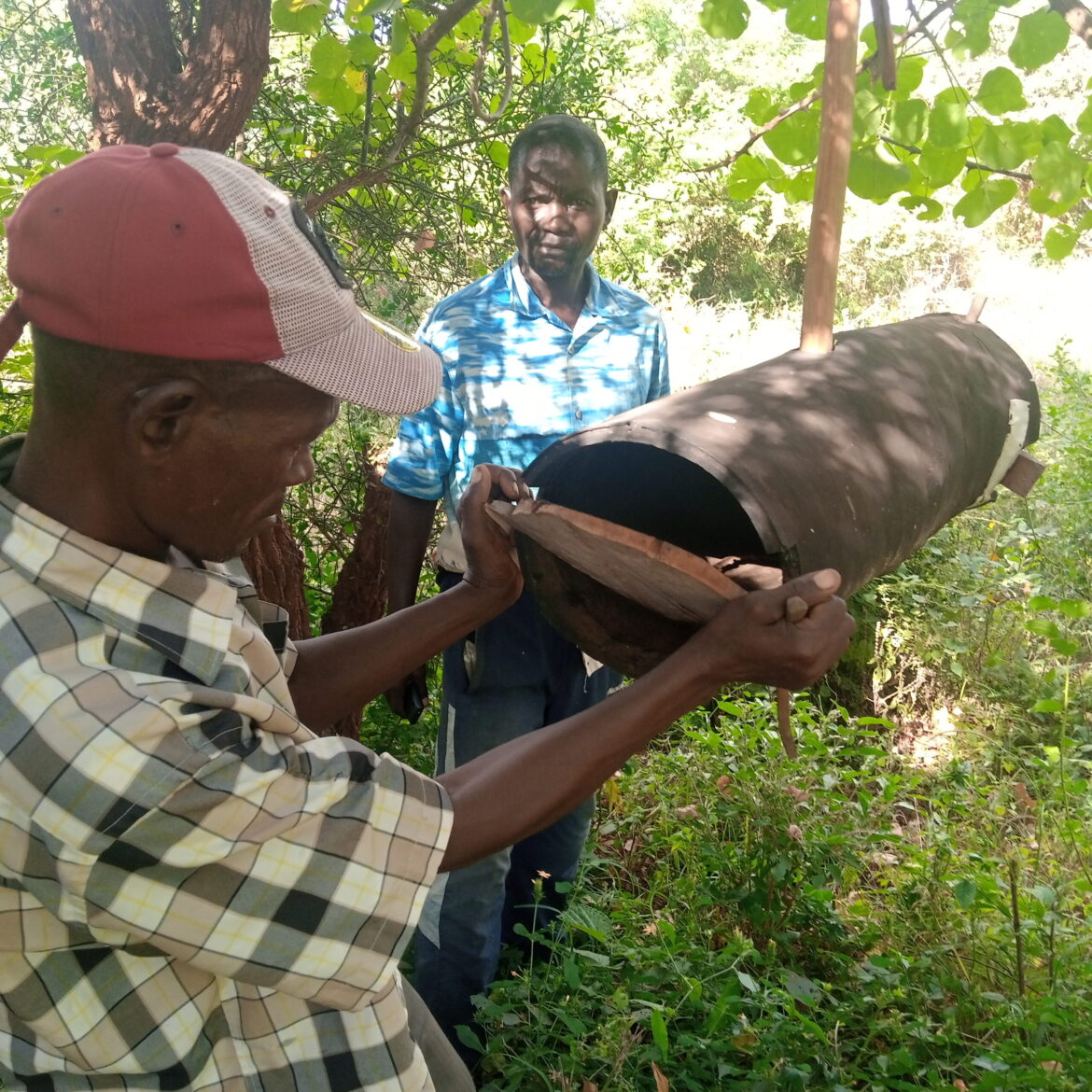
By Correspondent,
Paul Kajita has excelled at the art of making traditional bee hives-and is a celebrated bee-keeper to boot.
And Kajita, 54, has embraced modernity and is active on social media, where he showcases the traditional hives he makes at his home.
For over two years Kajita, A father of five, has put his vast knowledge of indigenous trees to good use and has made a name out of carving hives at Nkarini in Tharaka South Sub County, Tharaka Nithi County.
With a gifted pair of hands and a trained eye, Ndori is easily able to identify the tree branches which are hollowed and suitable for a hive.
Just by tapping a tree with his fingers and a casual inspection of the trunk, Kajita will know which tree is hollowed, and suitable for making hives of different sizes.
“Usually I go for a tree which has a straight hollow and that is always at both ends. It makes my work easier because I have to carve its inside for the desired size of a hive,” he said.
After identifying a suitable tree to make the hives he settles down for a period of hard work, and keenly make the top quality hives at his base along the Mati road, connecting Meru to Tharaka Nithi and Embu counties.
The strategic location makes it possible for locals and travelers to view the displayed hives, and Kajita told The Eastern Newspaper that he is making a profit from the business.
“The price of a hive depends primarily on the size and type of tree I use. The ones from hardwood cost more. Prices range from Sh1, 000 to Sh500, depending on how much honey they can store,” he revealed.
The amount of time he takes to make a single beehive can range from hours to three days, depending on the shape and size of the tree, and the type of hive his clients want.
Traditional hives are preferred by many because they are not coated with paint, unlike modern hives.
“The bees do not like vanish either. Modern hives are vanished to prevent rust, and the bees do not want that.”
The indigenous trees that are mostly preferred for hives include mutithi, miruruku, mukau, muura, muthegejiu and murugunyu.
“But I get orders from as far as Mombasa because I have deployed the power of the social media such as Facebook and Whatsapp to market the hives. I post the hives on these media to attract customers,” he said but pointed out that he gets most of his buyers from referrals.
Kajita also has learned the process of making honey, as a means of adding value to his work.
He has placed hives on his farm but just like others, he has placed others on people’s farms.
He explains all members of the community who keep bees are at liberty to place their hives on trees on farms on neighbors’ farms because bees being free creatures do not belong to anybody!
Patrick Ndori, another bee-keeper in the region, says the fact that there were forests of indigenous trees in Tharaka made it the ideal place for the best quality of honey.
“Bees prefer warm areas and trees with nice smell and fruits. They love flowers and sweet flavored leaves. These attract bees. They like sheltered areas, away from sunlight,” said Ndori.
The two farmers oppose the national government’s proposal to regulate bee-keeping, and the proposal to license operators in the industry.
“It does not make sense for the government to propose to license bee-keepers because it means we will be paying taxes. Bees are free creatures and we, as bee-keepers, cannot prevent them from flying away due to the weather and other factors. Unless the government talks with bees and asks them (bees) not to migrate from our hives, bee-keepers will not cooperate in the proposal to regulate us,” said Ndori.




